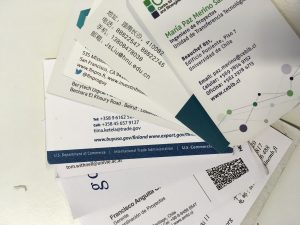Interview with Annamari Heikinheimo, University Lecturer, Division of Food Hygiene and Environmental Health
Annamari Heikinheimo studies antimicrobial resistance (AMR), the ability of some microbes to fight drugs such as antibiotics. This is a phenomenon parallel to climate change in severity. Resistance develops at an accelerating rate because antibiotics are used so much in today’s world.
I meet Annamari in a coffee room in the EE building in Viikki. A PhD student is tapping away on a PC in the corner. ”We need the space”, Annamari says matter-of-factly, and with the same tone continues: ”In 2050, we’ll all know people who have died of infections immune to any medicine. Then, more people will die of these superinfections than of cancer”. We will have entered a post-antibiotic era, she says.
